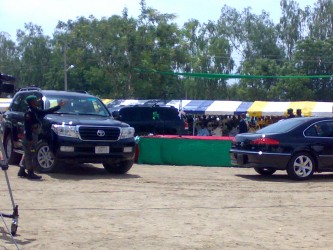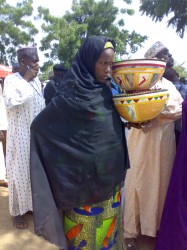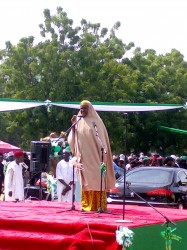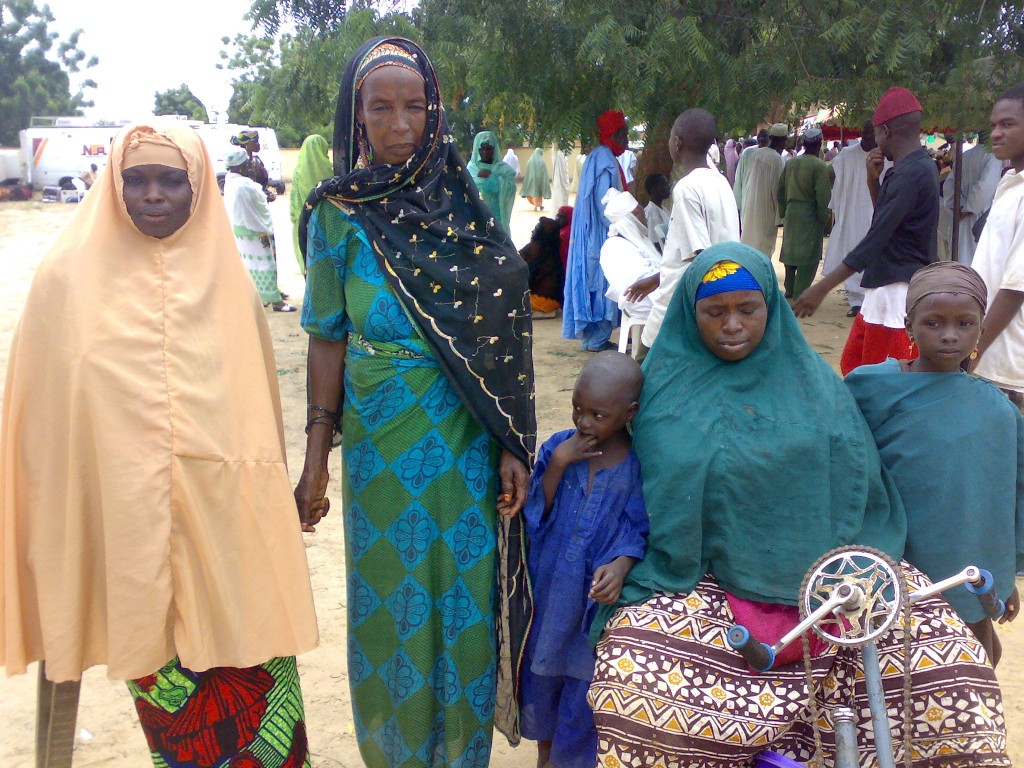Last week I was out on 'representational duty', attending a poverty summit held in Kano's neighbouring State, Jigawa, to listen to progress on impacting on poverty. What difference can a year make?
Jigawa State with 4.3m people is not only as populous as a small African country it is also poor, one of the poorest in Nigeria’s federation. The poverty rate was estimated in 2004 at over 90%, compared to a national average of 54%. Since 2007, the Jigawa State Government has made public commitments to tackling poverty, with DFID support amongst others and listening to the poor. In Jigawa Governor Sule Lamido’s words: “We cannot continue to stay in the comfort of hotels, discussing poverty and claiming we are interested in eradicating it. There are people talking who have never seen a hoe. They have no idea of what is called the Nigerian peasant going about his life with untreated diseases…”
This led to the convening of the Talakawa - or Poverty Summit – in Oct 2008 to dialogue with the poor and to develop more participatory strategies for addressing poverty. It was a large open air event with the poor - Talakawa – giving testimony to the elite. Present at the summit were representatives of the poor across 51 vocational groups of the state, which included rice farmers, groundnut oil producers, food sellers, traditional birth attendants, cart pushers, the physically disabled, carpenters, tailors, farmers, fishermen and others.
Concerns were raised about rapidly declining income, unfair competition from modern production, lack of modern technology to enhance their competitiveness and lack of modern infrastructure - roads, electricity, and relevant skills training. How can baker Badamasi afford to educate his 33 children in the face of rising flour prices, competition from modern Chinese bakeries and new health and safety regulations?

One year has passed since the Summit and on behalf of the DFID Northern Nigeria office I attended the follow up 1st anniversary Talakawa event, to give a good will message, hear an account of progress made in tackling poverty and to listen to the the testimony of the poor. The government and society elite gathered once more under the blaze of a hot sun and the media spotlight. As speeches were delivered, a few elderly ladies discretely begged - not wishing to miss such an opportunity and uncertain of what they otherwise might gain from showing up!
A credible list of achievements over the past 12 months was given: skills and vocational training, road construction, agricultural extension services, micro-finance and community law centres. It was welcome to hear the impact of DFID’s support, for example in arranging regular finance for free maternal health services and training for traditional birth attendants (TBA).
The introduction of a safety net for the physically disabled through regular monthly payments was also highlighted. However talking to a group of disabled women (polio affected) in the crowd, I heard that this benefit was yet to reach everyone who qualified. Interestingly testimony from some disabled at the Summit requested skills training and tools, not cash handouts.

What did the Talakawa (poor) think of the support being provided, 12 months on? Clearly there had been benefits to many of those called to speak. Umar a laundryman was now profitably retrained as a photographer and Abdu a leather worker was now back in operation following business support. Gambo a TBA was grateful for her training on how to assess when emergency obstetrics support was needed, but pointedly asked when she would get the delivery equipment she badly needed. Very limited support clearly could make a difference, for example Bilkisu, a fura (milk porridge) seller now made more profit following marketing advice on where best to sell her goods. However she still struggled to cope to make ends meet in the dry season and to pay medical costs.

It would be easy to dismiss the Talakawa events as mere political window dressing; given the sheer scale and depth of poverty it is difficult to know how representative the poor giving testimony actually were. However Jigawa does give the impression of a State finally making progress and a genuine concern to address the needs of the poor is evident. Poverty eradication is certainly a long term goal that cannot be achieved over night.
Over the last two years I have seen Jigawa’s capital Dutse being transformed with new roads and buildings. With the support of DFID’s programmes much better government planning and budgeting systems are now being put in place. These are essential to cope with the swings in revenue that come from Nigeria’s oil wealth and try to prevent a return to the bad old days of elite capture and corruption that has paupered States such as Jigawa in the past.


2 comments
Comment by adamu garba muhammad auyo posted on
Muna taya mai girma gwamnan jihar jigawa addua,abun da kake mungani kuma sannan mun yaba,don haka allah ya kara jagora,mai girma gwamna mun sani kai mutunne mai kishi,don haka muna bukatar ataimaka mana aginamana state university kamar yadda akai a jihar katsina,daga karshe ina tayaka murna,sannan kuma allah ya kara jagora.
Comment by Ian Attfield posted on
Adamu,
na gode da amsar ka (wanda a ka fassara min). Amma abin duba wa a nan shine, lallai ne jihar Jigawa ta duba bukatar ta ta yin jami'a da bukatar ilimantar da dinbin yaran ta da ya kamata su samu ilimin firamare. In har a na so a kauda talauci, to kuwa lallai ne a duba duka bangare biyun.
Thanks for you reply. Jigawa must balance the needs for State universities with mass education for its children. Direct impact on poverty needs a careful balance!
(A big thank you to my colleague Jummai for translation!)